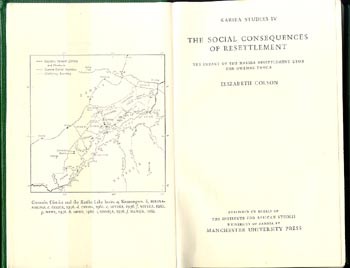Kinfe Abraham (1950-2007) was one of Ethiopia's leading academics, although his books are not well known outside of the country. In this post I pull some though provoking quotes and ideas from his 1994 publication "Ethiopia from Bullets to the Ballot Box: The Bumpy Road to Democracy and the Political Economy of Transition". The book remains timely because history provides us a wealth of lessons. At the time of writing, Kinfe was optimistic following the early years of a new government (1991-1994), when many new ideas and policies were being discussed. He writes, the changes "revived the hope and optimism of thee late 1960s and early 1970s which seems to promise that the "ballot box" and not the "bullet" might be the final arbiter which determines the new direction of political and economic life in Ethiopia" (p. xvi). At times, one forgets this book was written in the early 1990s.
"For the majority of Ethiopians, especially the small and large nations which had historically been denied legitimate recognition as nations, regional division and ethnic representation is one way of epitomizing their new achievement. Indeed, it is seen as a psychological and political break through by many. This new card enables them to negotiate for a better deal for their people and regions. However, in practical terms, ethnic and geographical division also have their associated drawbacks. There is a good deal of ethnic and geographical overlapping among the nationalities which might give vent to latent hostilities… Despite these problems, the present formula of ethnic federalism represents the first serious attempt by a government in power to address the complex problem of nationalities squarely and realistically" (p. 28-29). He later re-emphasizes this point: "Essentially, the debate underway in Ethiopia is about power and how it should be shared among the various regions whose nationalities currently make up the country. But there is also the complex task of creating an administrative structure geographically symmetrical to the ethic and linguistic configuration of the country. This task is by no means easy because geographical and ethic and linguistic divisions do not always coincide" (p. 49).
On resettlement:
"Resettlement was and will in the future remain an important issue to take into account. In fact with a bit of incentive it might even prove an attractive proposition for many. However, what the new government should be warned against is that such programs should not be undertaken without proper planning or through coercion. Instead, it should be planned, publicized and offered strictly to those who want it" (p. 99).
A worrisome historical trend:
"Although the Derg had pledged to hand over power to the people after a period of time, it failed to respect that pledge and moved on to create the structure which would consolidate its position of power… The state, in a bid to consolidate its power, resorted to intimidation, arrests and the physical elimination of people suspected of opposition" (p. 105).


